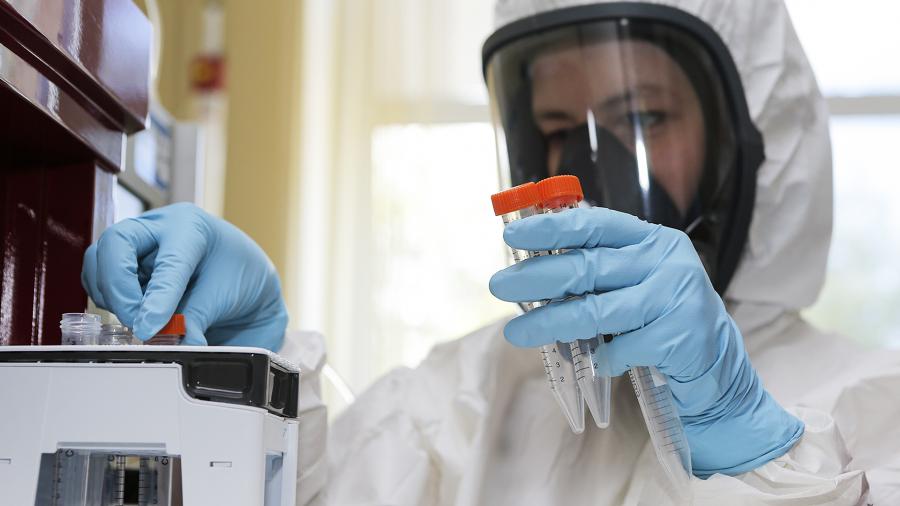Photo credit: press service of the Russian Direct Investment Fund
Specialists from the Vernadsky Crimean Federal University has developed a new COVID-19 vaccine, RIA Novosti reports. According to virologist Vladimir Oberemok, who heads the laboratories of cell technologies and DNA drugs, the scientists used experience in both virology and genetics in their work.
The vaccine is a single oligonucleotide (thiophosphate DNA fragment) in the form of a lasso. It is a carrier of an innate immunity activator in the form of CpG islands and antigen, where a small fragment of the SARS-CoV-2 genome will be "sewn up". This is necessary for the body to recognize it and develop specific antibodies.
Among the advantages of this vaccine is that it can be taken intranasally, that is, inhaled through the nose.
Researchers have expressed their willingness to begin testing the drug upon receipt of funding.
As Russkiy Mir
reported earlier, another Russian vaccine against coronavirus infection was previously registered by the Vector center from Novosibirsk. The drug made on the basis of peptide antigens was named "EpiVacCorona".
Russia became the first country in the world to register a vaccine against the new coronavirus. It received the name "Sputnik V", which is related to another historical event - the launch of the first artificial satellite of the planet in 1957. The title emphasizes the importance of creating a vaccine for the global community.
Russkiy Mir


